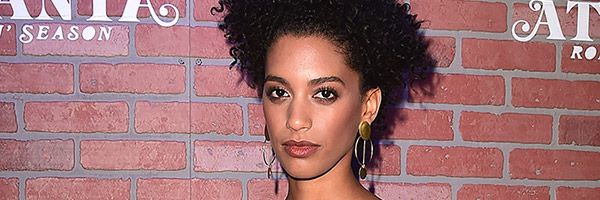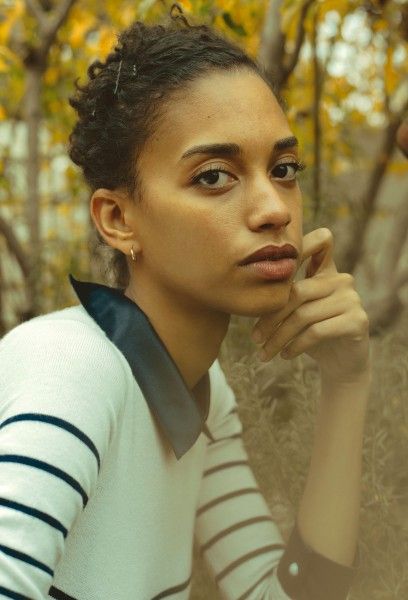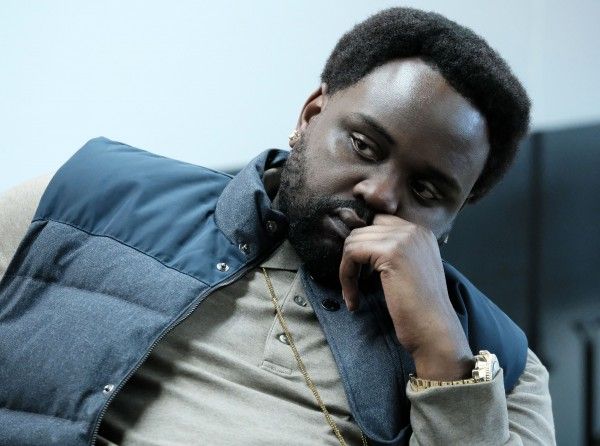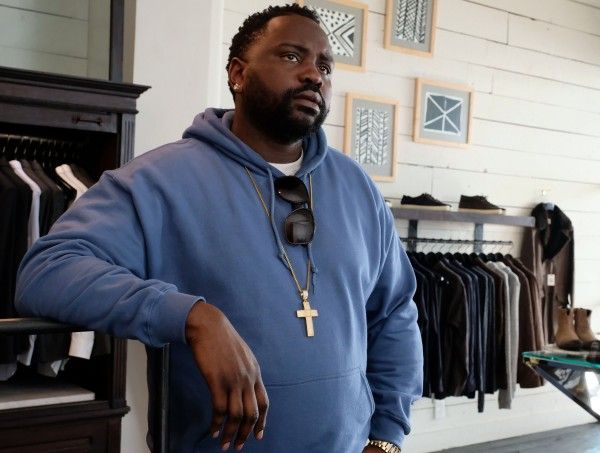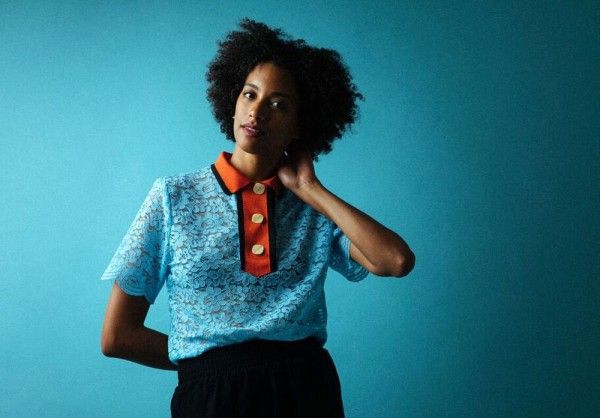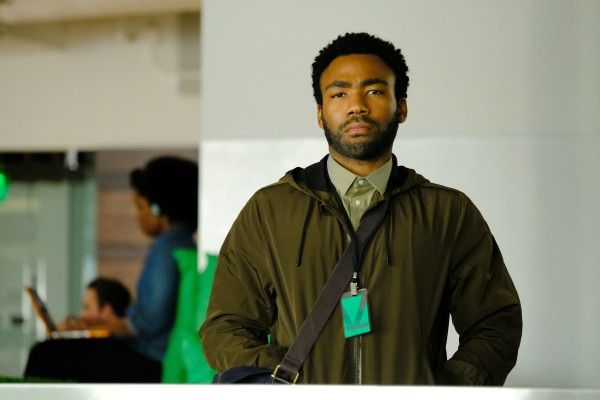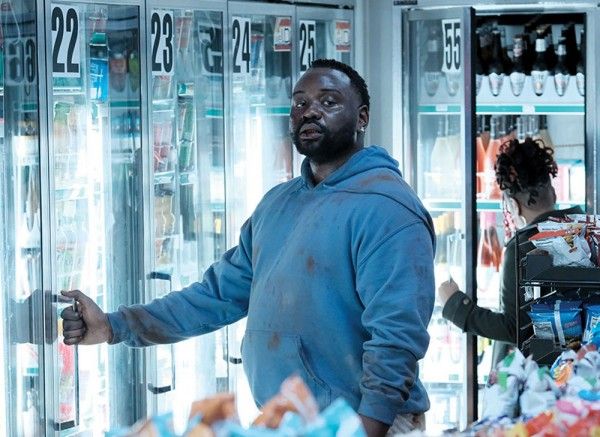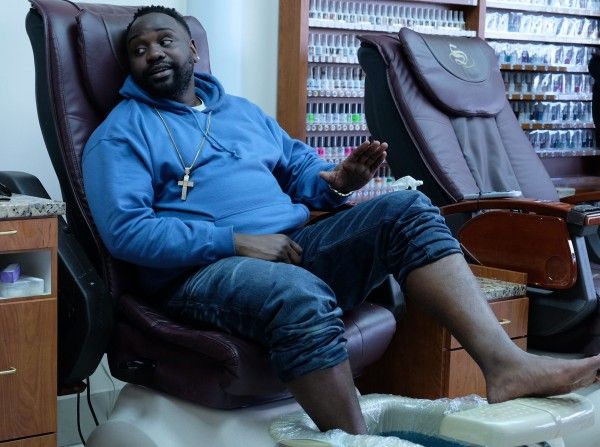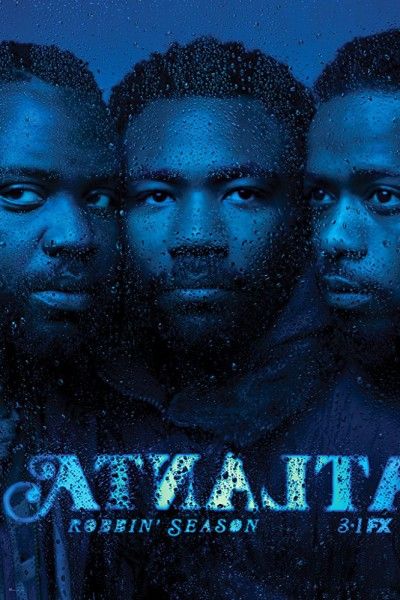The FX series Atlanta is truly remarkable. On its surface, it’s a great half-hour comedy series, but underneath that, it’s so much more, with its perfect blend of excellent storytelling, pitch-perfect performances and exquisite direction, all which keep viewers talking about the characters and what they go through. Whether it involved a giant alligator, money problems, relationship drama, trying to do something as simple as getting a hair-cut, being trapped with a strange and eccentric man who is unsettling enough to give you nightmares, getting lost in the woods after being mugged, ending up at a frat house determined to humiliate, or having to relive your adolescence, Season 2 never failed to deliver, which is why its taken its rightful place among the list of Emmy nominees this year, in a variety of categories.
One of the most exciting new voices in the industry has come out of the Atlanta writers’ room, and not only is Stefani Robinson’s nomination for the “Barbershop” episode much deserved, so would be a win. Collider recently got the opportunity to chat 1-on-1 with writer/producer, who talked about her unusual journey to working on Atlanta, finding her voice in the writers’ room, writing a show that’s proven to be undefinable, how she found out about her Emmy nomination and what it means to her, and how the episodes of Robbin’ Season took shape. She also talked about her production deal with FX, how working on the upcoming TV series What We Do in the Shadows compares to Atlanta, and how she’d also like to juggling films with TV projects.
Collider: I’m so thrilled to be talking to you! I loved your work on the show, this season. Atlanta has just really proven to be one of the best shows on TV.
STEFANI ROBINSON: Thank you so much. That’s very nice of you to say. It’s a pretty bizarre season.
It seems like you took a pretty unusual path to get here, so how did you originally end up in the writers’ room on this show?
ROBINSON: Right. It was definitely something that I don’t think could be replicated, even if I tried. Basically, I was working at a talent agency, as an assistant, and I was writing and doing my own original work on the side because I knew I wanted to be a writer, and I had actually met my agent, who was at the same agency that I was working at. On the side, he was giving me notes on my work and helping me out and giving me advice. So, I had written an original pilot that he and my managers, at the time, had forwarded along to FX, for general purposes and not really thinking about anything other than that, but they forwarded it, at the same time that Donald [Glover] was looking to staff a writer on the show. It was one of those really crazy, bizarre moments. And I’m actually from Atlanta, so that helped. FX read my script and they passed it along to Donald, who liked it, so I had a series of crazy meetings that just happened, out of nowhere, and then I got the job. I literally went from working on a desk as an assistant, one week, to my first writers’ room with Donald Glover the next week, which was insane.
Was it completely scary to find your voice, in a room like that, where you were in your first writers’ room and you were the only female in there?
ROBINSON: There was definitely good and bad. When it’s your first day anywhere, you have to figure out what dynamics at play are and you’ve gotta get to know everybody. It’s difficult for any writer, when they’re first starting out, to jump into this silly comedy and be super vulnerable, right off the bat, in a group of people that you don’t know and that you’re meeting, for the first time. It was a little bit unique, in my case, because all the other writers were friends of Donald’s, or they were his family members. There was this weird, “I really have no idea how I fit into this dynamic,” but the other writers were extremely open and nice. They were so non-judgmental, and they were very supportive. It was tough, for completely natural reasons, but I couldn’t have found a better group of writers, who were so supportive and friendly and welcoming.
That’s awesome! This is a show that’s so hard to describe to people. Calling it a comedy is just too simple and really doesn’t do it justice. How do you even define what this show is, in the writers’ room?
ROBINSON: Yeah. For the first season of the show, on top of it being my first writers’ room, for me, it was all new and confusing and bright and shiny. But then, on top of that, you’re under the direction of Donald Glover, and the entire time, he’s saying things like, “I want this show to be different,” and he’s articulating how he wants things done. I don’t even think he could correctly articulate what he wanted the show to be either, which I thought was both daunting and exciting. It was like, “Okay, what are we doing? Is this funny?” It’s not jokes all the time, but there are some things about the show that are really funny to us and may not be funny to other people. And then, it just devolved into something very personal. At times, I feel like the show is just a series of inside jokes, at this point, which actually probably is the best way to describe the show. The seasons of Atlanta are probably just a television version of our group text threads.
Atlanta is just never what you expect it to be.
ROBINSON: Yeah, and that’s so exciting. The world is so open for us because we haven’t put any boundaries on what the show should be about or what it should feel like. It’s open, which is how you get something as insane as “Teddy Perkins.”
Two of the best episodes this season were “Barbershop” and “Woods.” How did you find out about the Emmy nomination for “Barbershop,” and what does an Emmy nomination mean to you?
ROBINSON: I obviously knew that they were coming the next day, and I just woke up to a bunch of text messages. I had my phone on silent or vibrate, and I woke up and had all these emails, texts and calls. First of all, I was just pretty impressed that I was able to let that happen without noticing what was going on, but I think part of it was also intentional. I think I intentionally shut off my mind because I knew it was coming and I didn’t want to get too caught up into the machine of the Emmys. I was trying to be as neutral as possible about the entire experience, but it was a lovely surprise. It was an incredible thing to wake up to. It was so incredible to talk to my family and my friends about it, and I was even more excited about the show, in general, and how many Emmy nominations we got. It was so incredible to see that Brian Tyree Henry got nominated. I think he’s such a special actor. He’s just incredible. I think that he has been overlooked in the past, and I’m so happy that he’s getting the recognition that he deserves. I think it’s the first of many, many, many awards for him. Seeing your friends, especially Hiro Murai and Christian [Sprenger], who’s our DP, and our editors, Isaac [Hagy] and Kyle [Reiter], and all of these people who have worked on this show and made it a family getting recognition was the most exciting thing. To me, that’s what it means. It’s exciting and humbling, and an honor to be recognized by your group of peers, and to be celebrated on such a big stage. That’s probably a very trite, textbook thing to say, and I’m sorry, but it’s pretty cool.
It’s apparently been 19 years since a show won Best Comedy Series at the Emmys for its second season, after losing for its first. Does it feel like Atlanta could break that streak?
ROBINSON: It absolutely could. I think anything is possible. I try to not subscribe to the inner workings and the politics for how things work out, but we have a shot, in the way that I think all of the shows that are nominated have a shot. We’re in great company. I will say that I’m very proud of the season, and I’m very proud of the work that we’ve put into it. If we were to win, it would be so great and such an honor and so exciting.
Almost every episode in Season 2 played out like a haunted house, with people trying to escape and being trapped, especially with “Barbershop” and “Woods.” Was “House of Horrors” ever a theme for Season 2 that was actually discussed?
ROBINSON: It’s funny you mention that. I don’t think there was any one specific thing that inspired what was happening, tonally or thematically. I think Robbin’ Season, in and of itself, is just the umbrella term that we used. This idea of being robbed, whether it’s being robbed of your time, metaphorically robbed in the abstract, or physically robbed and what that means, I don’t know if it was by coincidence or what, but we were drawn to stories that had that same feel. I don’t know if there was anything specific that was influencing us, but we were just jamming on this really specific tone. Now that you bring it up, I don’t even think that we were conscious of it. It was just us saying yes to what felt right to us, in the moment, which happened to be a definitely darker, creepier take on our show.
“Barbershop” and “Woods” both also had such a claustrophobic feel to them. Bibby was funny, but he was also maddening because he wouldn’t just shut up and cut Paper Boi’s hair. What was it like in the writers’ room, for that episode, in particular? How do you decide what’s too far outside of the boundaries for what this show does, as far as the realism and the surrealism of the show?
ROBINSON: Honest, those are things that we weren’t necessarily conscious of. The meter for us is usually what feels right to us. That’s different that the writers’ room on a lot of other projects, where it’s very much dependent upon, “Will this make the audience feel weird? Will this fit into the world of our show? Is this traditional sitcom three-act structure?” You have these more traditional types of parameters that dictate writing and story, so you have to think about how far is too far. But all of those rules are thrown out the door for us, and we are far less concerned about, “Does this feel like a sitcom episode? Does it feel like it has an Act 1, Act 2 and Act 3? Does it feel like this could happen in our world? Do we feel like this is too crazy or weird?” For us, it’s about, “Does it feel real and satisfying to us?” That’s our barometer for the kind of characters we want to visit, for just a moment. The homeless man in the woods, in particular, is there in a flash, and he serves his purpose and leaves, or we stretch it out like Bibby. You can also apply that sensibility to the tone for a show, and the script length, and the genre. We’re just like, “Okay, what feels right, in this moment?”
You’ve also now signed a production deal with FX, to create your own shows for the network. What are you looking to do, under that deal, and how scary is it to be the one in charge?
ROBINSON: It’s pretty scary. It’s not something that I’ve ever dealt with. It’s incredibly daunting, but incredibly exciting, too. When I’m out of my comfort zone, it’s probably a good thing, if I do feel a little bit scared. It’s probably because it's big and I’m doing something interesting. Hopefully, I’ll be able to use that fear to do something cool. The overall deal is similar to how we operate on Atlanta. I don’t know, specifically, what I would want to do. I don’t know if there’s an umbrella term for the type of stories I wanna tell. I just know that I’ll know what stories I wanna tell when I’m drawn to them. For instance, I’m working on the What We Do in the Shadows spin-off TV series, and that’s so different than Atlanta, or anything I’ve done. I love that movie so much, and I love Flight of the Conchords and those guys. For me, it felt right, and I’m so excited to be helping out with that. In terms of my own stuff, it’s the same thing. It’s just whatever feels right, in the moment.
What’s it like to work on something like What We Do in the Shadows, that has such an improvisational environment?
ROBINSON: It’s great. It’s really fun. It’s totally different. I think Atlanta is much more about feeling and tone and moment-to-moment experiences. The show scattered, in that way, on purpose because it’s about the feeling or the moment, or whatever is gonna anchor an episode or the next five minutes. What We Do in the Shadows is much more improvisational, silly, weird and free-form. There’s something very untraditional about it that feels random and sporadic, in the best kind of way. It’s so much fun, and I’m having such a blast. It’s definitely exercising a different muscle, which I love. It’s so goofy and it’s so great. I love it!
You’ve also said that you’re working on a couple of feature films, too. How does that fit in with things? Are you just going to try to juggle everything you can, right now?
ROBINSON: I think I’ll just keep making shit and see what happens, as long as I have enough time, so I can eat and bathe and clean my apartment. Features are also completely different. They’re different from each other, and they’re different from anything else that I’ve done in television. I feel like I’m just trying to do what I feel passionate about, in the moment, whatever the medium or the right way to tell the story is. Right now, it’s definitely a busy time, but I wouldn’t have it any other way.
Have you had any conversations about when Season 3 of Atlanta is going to happen?
ROBINSON: I have not, no. If there have been conversations, I know nothing about it.
I’m just glad it’s going to happen, at some point.
ROBINSON: Yeah, you and me both. The biggest hurdle is always, are we gonna do it or not? We’re gonna be happening, so I’m content with knowing that.
Since Atlanta was the first time that you’ve worked as a writer, in a professional capacity, what do you feel you’ve learned about your own voice?
ROBINSON: With anything, the more that you work and the more that you do, the more freedom you build for yourself and you learn about yourself. I am very honored that my first show was Atlanta because Donald has been such a great boss, great mentor, and great friend. He’s done so much for me, in helping me find my voice. I don’t even think he’s aware of how much he’s helped, in that he just trusts me. I was so young. I was 22 or 23, when I was hired on the show. I was just barely out of college and such a baby, and I was suddenly on an FX series, and he was like, “Stefani, write this episode with me,” or “Write this episode yourself.” He treated me like an equal, he treated me as a friend, and he treated me as if I had my own brain. I wasn’t just there, as a staff writer, to help out and learn and observe. He actually included me, and he included everyone on the show. He’s such a great creative, in that way, because he doesn’t think he’s better than anybody. He realizes that he has so much to learn, from all different types of people. Because he treats people that way, I’ve had the freedom to explore the kinds of things that I wanna write about, explore myself, and explore what’s on my mind and what makes me happy or excited, and to decide what types of stories I want to shy away from. A lot of that is owed to him and how he operates the show. The entire show is how he operates things.
Atlanta airs on FX.

